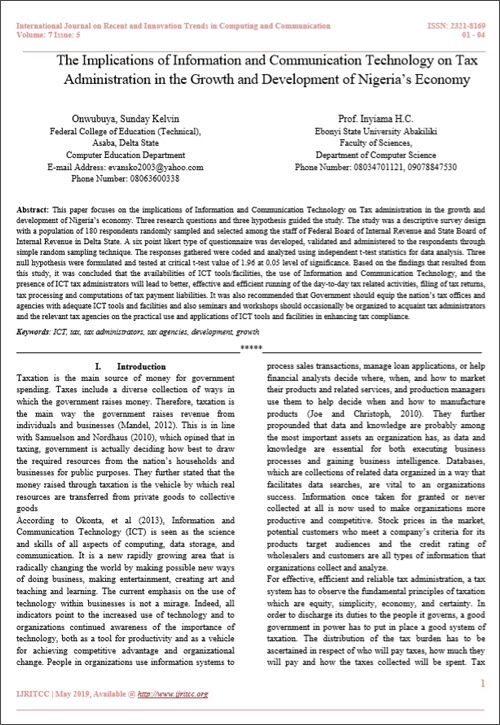The Implications of Information and Communication Technology on Tax Administration in the Growth and Development of Nigeria’s Economy
Main Article Content
Abstract
This paper focuses on the implications of Information and Communication Technology on Tax administration in the growth and development of Nigeria’s economy. Three research questions and three hypothesis guided the study. The study was a descriptive survey design with a population of 180 respondents randomly sampled and selected among the staff of Federal Board of Internal Revenue and State Board of Internal Revenue in Delta State. A six point likert type of questionnaire was developed, validated and administered to the respondents through simple random sampling technique. The responses gathered were coded and analyzed using independent t-test statistics for data analysis. Three null hypothesis were formulated and tested at critical t-test value of 1.96 at 0.05 level of significance. Based on the findings that resulted from this study, it was concluded that the availabilities of ICT tools/facilities, the use of Information and Communication Technology, and the presence of ICT tax administrators will lead to better, effective and efficient running of the day-to-day tax related activities, filing of tax returns, tax processing and computations of tax payment liabilities. It was also recommended that Government should equip the nation’s tax offices and agencies with adequate ICT tools and facilities and also seminars and workshops should occasionally be organized to acquaint tax administrators and the relevant tax agencies on the practical use and applications of ICT tools and facilities in enhancing tax compliance.

